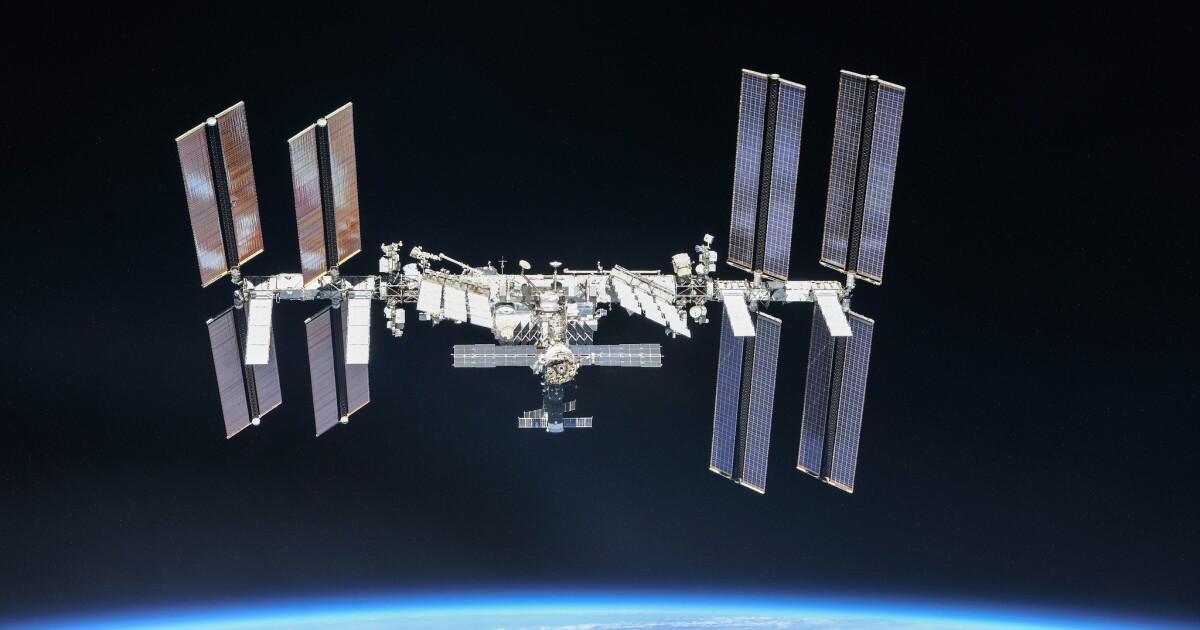Space Travel Can Adversely Impact Energy Production in a Cell | Technology Networks

While you're here, how about this:
Space travel is bad for the body at a cellular level

The Georgetown Lombardi study now adds the depressing prospect that weightlessness and cosmic radiation, along with other factors, can also affect the body on a sub-cellular level by damaging the mitochondria – the powerhouse of the cell that turns sugar into energy.
"My group's research efforts centered around muscle tissue from mice that were sent into space and were compared with analyses by other scientists who studied different mouse tissue," says Evagelia C. Laiakis, PhD, an associate professor of oncology at Georgetown. "Although we each studied different tissue, we all came to the same conclusion: that mitochondrial function was adversely impacted by space travel."
Space Travel Can Adversely Affect Energy Production in Cell: Study | The Weather Channel -

Critical parts of a cell's energy production machinery, the mitochondria, can be made dysfunctional due to space travel, says a study.
"My group's research efforts centred around muscle tissue from mice that were sent into space and were compared with analyses by other scientists who studied different mouse tissue," said Evagelia Laiakis, Associate Professor at Georgetown University Medical Centre in the US.
"Although we each studied different tissue, we all came to the same conclusion: that mitochondrial function was adversely impacted by space travel."
COVID-19: Sequencing, the cytokine storm, and space travel
Under normal conditions, the human immune system is built to regulate itself and its response to pathogens. However, almost every component is overactivated or mis-activated during a COVID-19 infection. This so-called cytokine storm is one of the biggest challenges when it comes to the prognosis and treatment of infected patients.
Due to its importance in COVID-19 outcomes, Mason is currently trying to better understand the cytokine storm and has noted parallels between the body’s response to the novel respiratory virus and the stress of landing back on earth. “As we were analyzing some of the COVID-19 data, it felt like we were analyzing return-to-gravity data again,” says Mason.
And here's another article:
BU Team Helping To Develop NASA Space 'SUITS' | Peoria Public Radio

A group of Bradley University students is participating in a challenge that will assist NASA's goal to put U.S. astronauts back on the moon within three years.
* * *
Bradley's BUEARTH team has been chosen for the next phase of NASA's "SUITS" challenge to design and develop interactive spacesuit interfaces that could be used on the Artemis mission.
"The general concept is that it's trying to further the interface design for their spacesuits," said Zach Bachmann, a senior computer science major who serves as manager and director for the 10-person inter-disciplinary undergraduate team. "Think of it as almost like how you envision Iron Man suits with all these projections that he can see while he's in the suit.
'Video doesn't do it justice', NASA astronaut posts his first video of Earth from space | Deccan

The pilot of SpaceX's Dragon Resilience, Victor Glover, posted his first video of Earth on Twitter from the International Space Station.
The first-timer in space, Glover expressed his awe in the video saying, "The video just doesn't do justice. It is pretty amazing though."
My first video from space! Looking at the Earth through the window of Dragon Resilience. The scale of detail and sensory inputs made this a breathtaking perspective! pic.twitter.com/n7b5x0XLIp
Fruit flies reveal new insights into space travel's effect on the heart

Study authors Karen Ocorr and Rolf Bodmer explain the results of their study that sent fruit flies to space
Karen Ocorr, Ph.D., assistant professor in Sanford Burnham Prebys' Development, Aging and Regeneration Program and Neuroscience and Aging Research Center
* * *
“For the first time, we can see the cellular and molecular changes that may underlie the heart conditions seen in astronaut studies,” says Karen Ocorr, Ph.D. , assistant professor in the Development, Aging and Regeneration Program at Sanford Burnham Prebys and co-senior author of the study.
Happening on Twitter
#EV charging infrastructure can enable connected cars to share travel data for solving problems of declining road t… https://t.co/xTXK6f9Juw stpiindia (from East Kidwai Nagar, New Delhi) Mon Nov 30 05:22:49 +0000 2020
Did you know people who are legally blind can now apply for a disability parking permit? ♿️ This means whoever's dr… https://t.co/RgJ2GpFR8h StreetSmartsQLD (from Queensland) Sun Nov 22 23:01:06 +0000 2020
Comments
Post a Comment